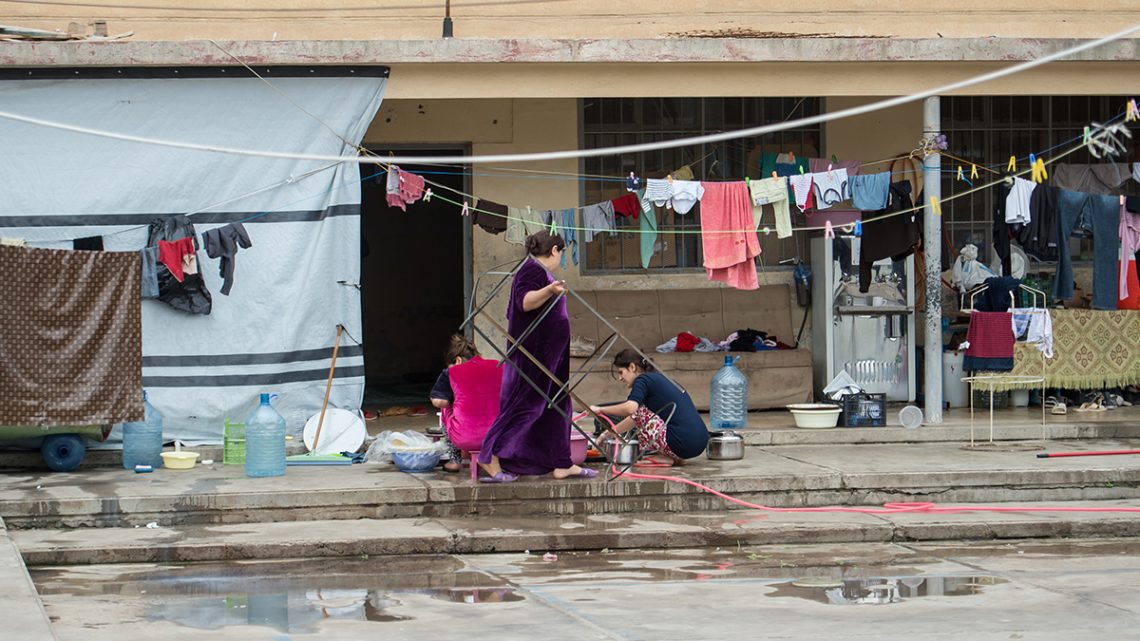
The Cardinal Archbishop of Westminster and the Archbishop of Canterbury have joined forces to condemn cuts to the UK’s Aid budget that will do “real damage” to Yemen, Syria and South Sudan and other countries in crisis.
The government has said it would not meet the 0.7% target in the coming financial year and spending will be cut to 0.5% of national income – a move that would save about £4bn a year.
Cardinal Vincent Nichols and Archbishop Justin Welby told the Evening Standard that “balancing the books during a pandemic on the backs of the world’s poorest is not acceptable.” They stress that “we must not walk by on the other side.”
Chancellor Rishi Sunak has said the cut is a ‘temporary’ measure to cope with the deficit caused by the COVID-19 pandemic and that the 0.7% target would return when finances allowed.
However, some MPs fear that the reduction could be permanent.
“Saying the Government will only do this ‘when the fiscal situation allows’ is deeply worrying, suggesting that it will act in contravention of its legally binding target,” say the archbsihops.
“This promise, repeatedly made even during the pandemic, has been broken and must be put right.”
The 0.7% baseline for Britain’s aid budget is enshrined in law by the International Development (Official Development Assistance Target) Act of 2015.
Covid has taught us many things, of which one of the most important is that we depend on each other around the world. Our freedoms, our safety, our health and that of our families, and of course our faith: these are all very precious. We have each benefited recently from coronavirus vaccinations. How fortunate we are.
And how much we long for all our sisters and brothers, wherever they are and whatever they believe, to know the same security. The pandemic has reminded us that no one is safe until we are all safe. Our lives are connected.
Of course, our traditions and scriptures have taught us this for centuries. We must not walk by on the other side, and love must prevail over fear when it comes to our global neighbours.
In the small print of the recent Integrated Review of defence, diplomacy and development was a pledge to return the aid budget to 0.7 per cent of Gross National Income. This would honour the many promises made and deliver on the duty imposed by Parliament. But saying the Government will only do this “when the fiscal situation allows” is deeply worrying, suggesting that it will act in contravention of its legally binding target. This promise, repeatedly made even during the pandemic, has been broken and must be put right.
We are already seeing hastily implemented cuts to countries like Yemen, Syria and South Sudan doing real damage to life-saving work. Promises – and truth – matter in politics, as in all walks of life. Real damage has been done. But it is never too late to do the right thing.
This year, the Prime Minister will host two critical international gatherings, which will go a long way to deciding the fate of global efforts to tackle climate change and recover from the pandemic. The G7 in June in Cornwall and the COP26 UN climate negotiations in November in Glasgow are events which remind us that we are one world, and that Britain cannot prosper if it shrinks from its international responsibilities.
Just as the UK has shown leadership on Covax and efforts on vaccination, so we must show leadership on the climate crisis and that requires leadership on international development. Keeping our promises to the world’s poorest people would be a good start. Balancing the books during a pandemic on the backs of the world’s poorest is not acceptable, when Britain should be setting an example and proving our standing as a world leader.
standard.co.uk
You can read the full news story in the Evening Standard. Published on 6 April 2021.